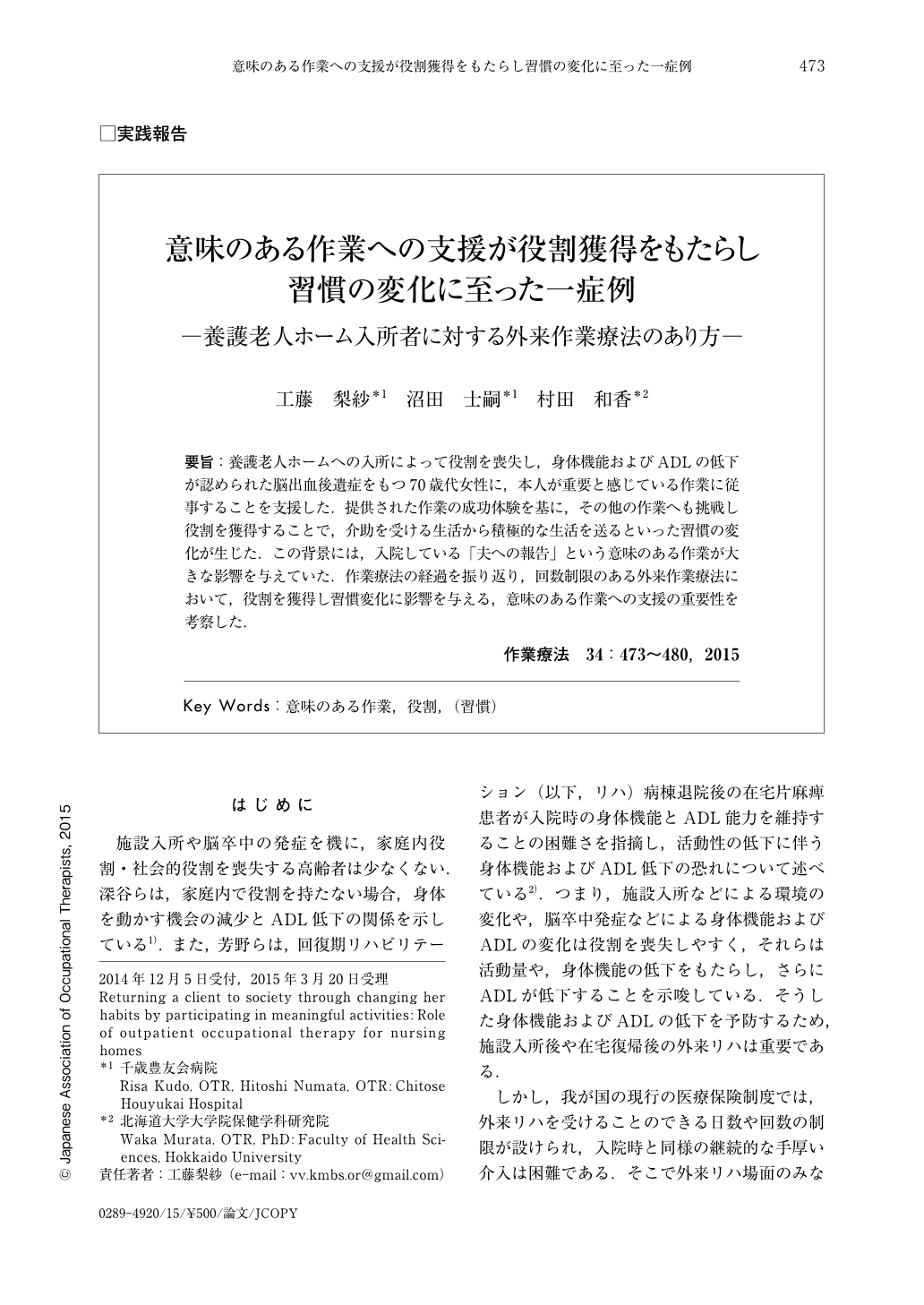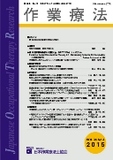Japanese
English
- 販売していません
- Abstract 文献概要
- 1ページ目 Look Inside
- 参考文献 Reference
- サイト内被引用 Cited by
要旨:養護老人ホームへの入所によって役割を喪失し,身体機能およびADLの低下が認められた脳出血後遺症をもつ70歳代女性に,本人が重要と感じている作業に従事することを支援した.提供された作業の成功体験を基に,その他の作業へも挑戦し役割を獲得することで,介助を受ける生活から積極的な生活を送るといった習慣の変化が生じた.この背景には,入院している「夫への報告」という意味のある作業が大きな影響を与えていた.作業療法の経過を振り返り,回数制限のある外来作業療法において,役割を獲得し習慣変化に影響を与える,意味のある作業への支援の重要性を考察した.
A woman in her 70s with sequelae of cerebral infarction participated in activities she thought was important. She lost her role in society and refused to participate in physical activities or activities of daily living; she used to spend a lot of time in a nursing home. She was successful in suggested activities; subsequently, she participated in other challenging activities and got her role back as a member of society. As a result, she was able to shift from being dependent to independent. This change was influenced by meaningful activities such as “reporting” to her husband in the hospital. Looking back at the occupational therapy intervention, we consider the importance of helping clients participate in meaningful activities, which can lead to a meaningful role in society. Such intervention is influential for changing habits in settings where time for intervention is limited, e.g., outpatient occupational therapy (outpatient OT).

Copyright © 2015, Japanese Association of Occupational Therapists. All rights reserved.


